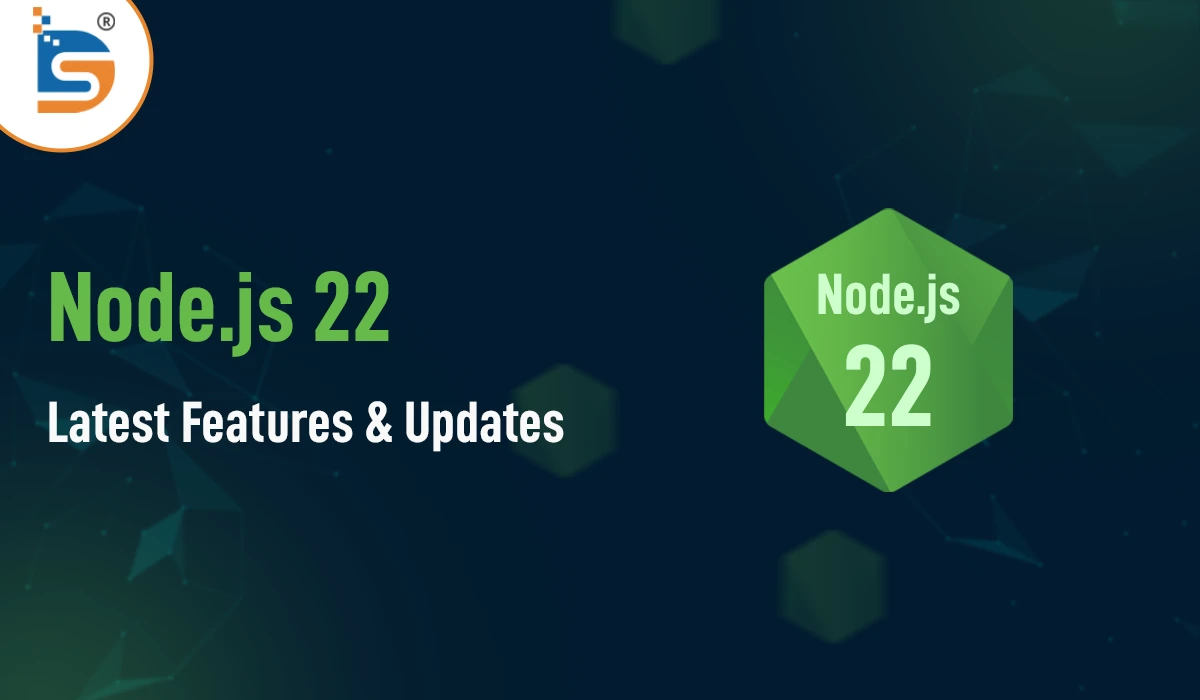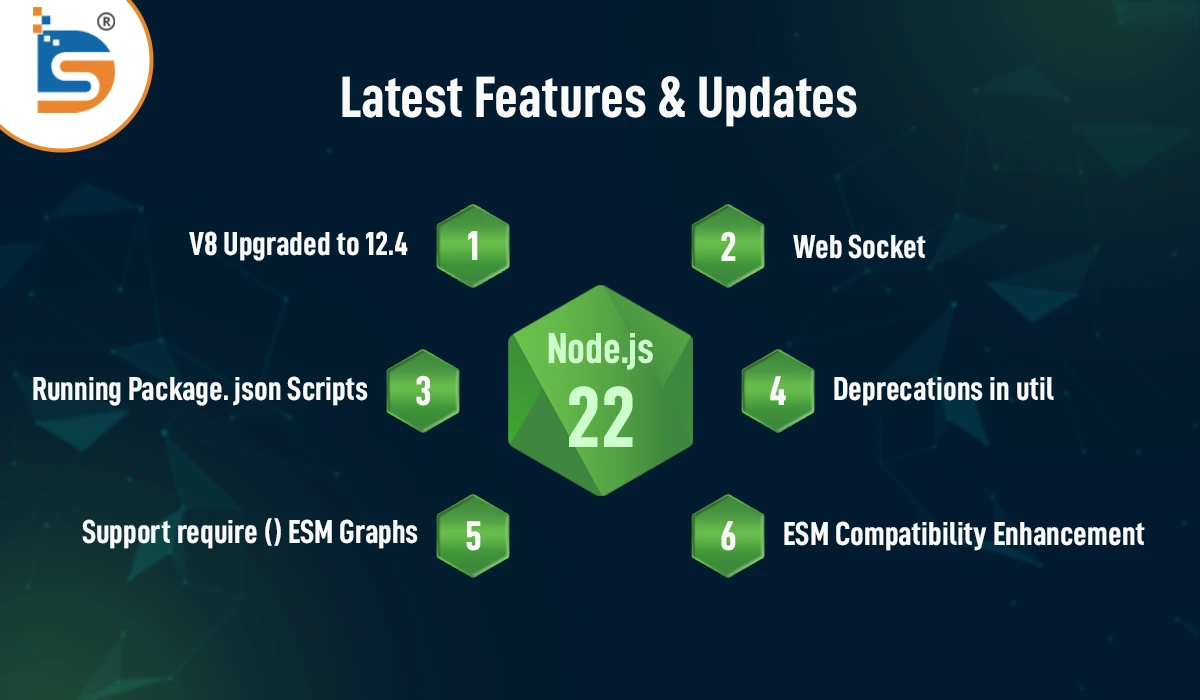Node.js 22: Latest Features and Updates
BY : Sdreatech
11-Sep-2024

Node.js 22 introduces a lot of relevant features and updates, including running package.json scripts, Web sockets, and many more. The main purpose of Node.js 22's updates is to improve the JavaScript runtime’s efficiency, flexibility, and responsiveness.
Node.js 22: Latest Features and Updates
Let's explore the new features and updates. Node.js releases these updates to improve the developer's experience, workflow, and efficiency.

1. V8 Upgraded to 12.4
Google's v8 JavaScript engine has been upgraded to version 12.4, which represents a new version with many updates and changes. In version 12.4, some of the most important features include increased processing speed, lower memory usage, and improved support for the latest ECMAScript standards. Users and developers will both have a better experience with these updates because they make JavaScript code run faster.
2. Web Socket
WebSocket is a protocol that provides a way to establish a constant, mutual interaction between a client and server. WebSocket always keeps the open connection, allowing both sides to send and receive messages independently. when the connection is established. This protocol is mainly useful for applications that need live updates, such as chat applications, live notifications, and online gaming.
3. Running package.json Scripts
This feature allows the execution of scripts from the package.json file using the command line. This change makes it easier to execute scripts directly, using the new CLI flag: node-run <script-in-package-json>. As a result, you are capable of performing tasks like developing, testing, and starting your application.
4. Deprecated in util
The most recent version offers developers a suitable platform for managing unnecessary APIs. It provides a systematic deprecated process with three stages: documentation-only, runtime, and end-to-life. Node.js 22 deprecated many util APIs while the program was running. Developers should use the throw-deprecation flag to run applications. With Node.js 22, it is beneficial to analyze and replace depreciated APIs, which improves the efficiency and functionality of applications.
5. Support requires () ESM Graphs
One new feature in Node.js 22 is the experimental-require-module flag that allows you to require the ECMAScript module (ESM) directly in the CommonJS module. It allows you to easily combine different module systems in your applications, providing more options for managing dependencies and organizing your code. This feature makes modular JavaScript easier.
6. ESM Compatibility Enhancement
'import.meta.filename' and 'import.meta.dirname' provide better file path handling in ESM. The experimental-detect-module flag simplifies the migration from CJS to ESM by automatically detecting module types. Import attributes have replaced import assertions, requiring you to update the syntax in your code when importing resources like JSON files.
Conclusion
Node.js 22 has taken just another big step forward in its development. Node.js 22 has great features that make it an excellent choice for your next project, whether you want to assist with the development or add features that work in real time. Explore and use these features to write more efficient, expressive, and maintainable code.